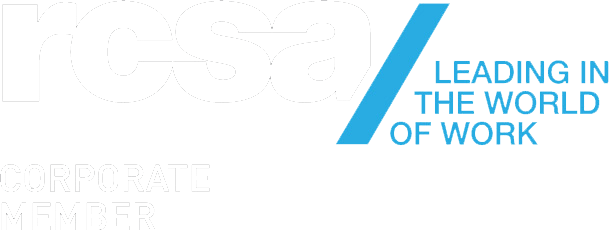What is the future of work really all about?

In the ever-evolving landscape of the modern workforce, the concept of the "future of work" has emerged as a pivotal discussion point. With advancements in technology, shifting demographics, and changing societal norms, the way we work is undergoing a profound transformation. In this blog, we'll delve into what the future of work entails, explore current trends shaping this landscape, and discuss key strategies for companies to thrive in this dynamic environment.
What is the Future of Work?
The future of work encompasses the evolving patterns, practices, and paradigms that define how individuals engage in productive activities. It's a multifaceted concept influenced by various factors, including technological innovation, globalisation, demographic shifts, and changing employee expectations. At its core, the future of work is about embracing flexibility, agility, and innovation to meet the demands of a rapidly changing world.
Current Trends Shaping the Future of Work:
Remote Work Revolution: The COVID-19 pandemic accelerated the adoption of remote work, transforming it from a perk to a necessity for many organisations. Even as restrictions ease, remote and hybrid work arrangements are likely to persist, offering employees greater flexibility and employers access to a broader talent pool.
Automation and AI Integration: Automation technologies and artificial intelligence (AI) are reshaping traditional job roles and processes across industries. While this presents opportunities for increased efficiency and productivity, it also raises concerns about job displacement and the need for upskilling and reskilling.
Gig Economy Growth: The gig economy continues to expand, with an increasing number of individuals opting for freelance, contract, or temporary work arrangements. This trend provides workers with greater autonomy and flexibility but also challenges traditional notions of employment relationships and benefits.
Emphasis on Employee Well-being: Organisations are placing greater emphasis on employee well-being, recognising its impact on productivity, engagement, and retention. Flexible work schedules, mental health support, and initiatives promoting work-life balance are becoming integral components of corporate culture.
Diversity, Equity, and Inclusion (DEI): There's a growing recognition of the importance of fostering diverse, equitable, and inclusive workplaces. Companies are implementing policies and initiatives to address systemic biases, promote diversity in hiring and leadership, and create inclusive environments where all employees feel valued and respected.
Key Strategies for Companies:
Embrace Flexibility: Flexibility is key to navigating the uncertainties of the future of work. Companies should be willing to adapt their structures, policies, and practices to accommodate diverse work arrangements and changing employee needs.
Invest in Technology and Skills Development: Embrace technological advancements and invest in training programs to equip employees with the skills needed to thrive in an increasingly digital workplace. This includes fostering a culture of continuous learning and encouraging employees to upskill and reskill as needed.
Prioritise Employee Well-being: Make employee well-being a top priority by offering comprehensive benefits, promoting work-life balance, and creating a supportive work environment where employees feel valued, heard, and empowered.
Foster Diversity and Inclusion: Create a culture that celebrates diversity and promotes inclusivity at all levels of the organisation. This involves implementing policies and practices that mitigate bias, foster belonging, and provide equal opportunities for all employees.
Embrace Agile Leadership: Adopt agile leadership principles that emphasise adaptability, collaboration, and empathy. Leaders should be willing to listen to feedback, embrace change, and empower their teams to innovate and succeed in a rapidly changing environment.
In summary, the future of work holds both challenges and opportunities for organizations seeking to thrive in an increasingly dynamic and interconnected world. By embracing flexibility, investing in technology and skills development, prioritising employee well-being, fostering diversity and inclusion, and embracing agile leadership, companies can position themselves for success in the evolving landscape of work. As we continue to navigate this journey, adaptability and innovation will be the keys to unlocking a prosperous future for both businesses and their employees.





